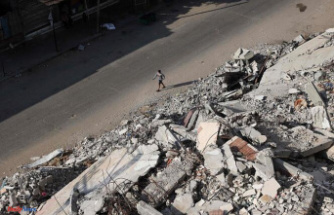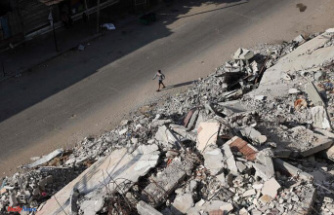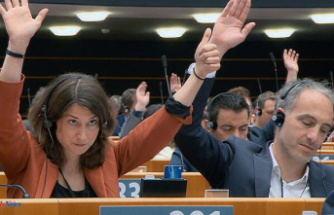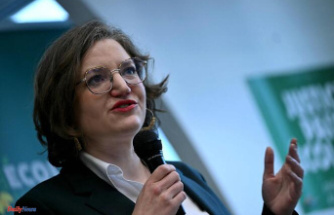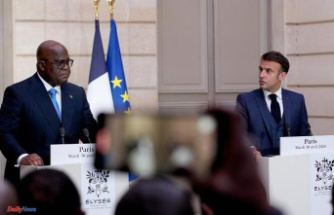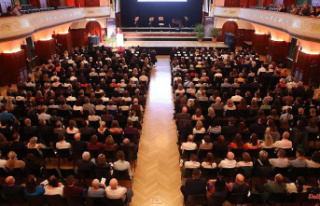Price brakes for energy and faster switching to renewable energies - these topics dominated the debate at a Thuringian climate conference in Weimar.
Weimar (dpa/th) - A climate pact currently being negotiated between the state and municipalities is intended to give Thuringian cities, municipalities and districts greater financial leeway for energy projects. In 2023, the state wants to make more money available to the municipalities for investments in climate protection than ever before, said Environment Minister Anja Siegesmund on Friday at a conference on renewable energies and climate protection in Weimar. According to the Greens politician, the state budget for the coming year, which is currently being discussed in parliament, has earmarked 50 million euros for this. Since 2021, there have only been ten million euros a year for municipal climate projects from the state treasury.
Federal Minister of Economics Robert Habeck (Greens), who was connected live to the conference from Berlin and also answered questions from the participants, promised quick decisions on price reductions for energy. "It's progressing at full speed," he said. "The prices have to go down, that's indisputable." On Friday, the Federal Council cleared the way for 200 billion euros in new debt to dampen gas and electricity prices.
Habeck expressed the hope that, given the fall in wholesale gas prices over the course of 2023, the federal government will not have to raise as much money to relieve the burden on citizens and the economy as it did this winter. However, the lower gas prices are "not yet a sign of complete calming down".
With the money for the climate pact, the municipalities could decide for themselves what they use it for - according to Siegesmund, the spectrum ranges from solar systems on town halls, economical LEDs for converting street lighting or sun sails for heat protection in kindergartens. The minister expressed confidence that the climate pact can start soon. "He's finished negotiating," she said on the sidelines of the German Press Agency conference. Cabinet approval is still pending. "It's a matter of days."
The minister appealed to business and citizens not to play security of supply and climate protection off against each other despite the energy crisis. In view of the price explosion, there must be quick help for citizens and business, but in the medium term the switch to renewable energies must be successful. Siegesmund reiterated the goal of solar systems generating electricity on 100,000 roofs in Thuringia by 2025 - currently there are only 40,000.
She and Habeck demanded more space for wind turbines. "There are currently too few viable projects," said Habeck. The bureaucratic obstacles at federal level for the construction of new wind turbines, but also of solar systems would be cleared away. He therefore asked that the federal states and municipalities not hide behind the bureaucracy when it came to speeding up the installation of renewable energies. "There are mayors who solve problems and there are mayors who marvel at problems," said Habeck. It can already be seen in industrial settlements: "It will be a competitive advantage to make renewable electricity available cheaply."
Siegesmund also wants to break new ground for more wind power. It is currently being examined whether companies can set up wind turbines on their land for their own electricity needs, she told the dpa. It is about atypical approval procedures, which could provide more speed in the recently sluggish wind power expansion. Of course, the existing distance regulations would also have to be observed.
According to Siegesmund, there is interest in the installation of wind turbines on company premises in the entrepreneurial camp. This has been signaled, for example, by the automotive supplier Mubea (Weißensee) in the Sömmerda district, but also by the large Bosch plant in Eisenach and the Tridelta campus in Hermsdorf in eastern Thuringia. "We're checking if that's possible."


